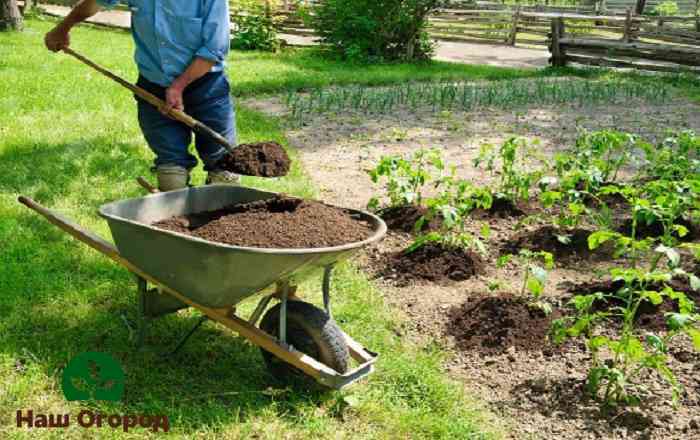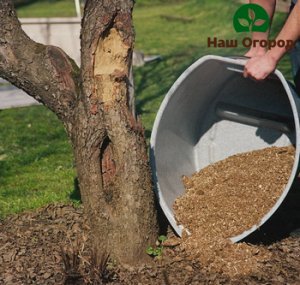Encyclopedia of organic fertilizers
Content:
Organic fertilizers are so called farms / manure. It supplies large amounts of mineral nutrients, organic matter and microorganisms to the soil. They increase the formation of humus in the soil, promote microbial activity and increase soil fertility.
Organic fertilizers include
Manure is the main fertilizer for most garden vegetables. Direct feeding with manure is not suitable for all plants. Farm manure is a fertilizer that, once applied to the soil, decomposes slowly and plants can consume nutrients for several years.
Manure contains 75% water, 15% organic matter, 0.5% nitrogen, 0.1-0.2 phosphorus, 0.3-0.6 potassium.
Farmer manure has a positive effect on the basic physical properties of the soil. Light soils increase consistency and the ability to maintain watering. Heavier and more compacted soils loosen and increase permeability.
Manure types
Horse manure is one of the best. Fresh manure is suitable for heating the soil in the vegetable garden and greenhouses. Mature horse manure is suitable for all types of soil, which it aerates and heats.
Sheep dung is richer in nutrients than horse dung. It is also suitable for warming up the soil, but loses its calorific value earlier.
Cow dung is steeper, more watery. Horse and cow dung are often mixed. Suitable for autumn fertilization.
Pig manure is cold. It is advisable to compost it before use.
Rabbit manure and poultry manure are high in essential nutrients. The richest nutrients are contained in pigeon droppings. Poultry droppings are best left to ferment for 2-3 weeks and diluted as a nutritious dressing.

Other types of organic fertilizers
Ash - Crafted by burning wood. It contains 5-15% phosphoric acid, 8-10% potassium, 25-40% calcium and a small amount of magnesium and sulfur compounds. Ash is about 2 kg per 10 m2. Fertilize the soil with ash in the fall or winter, no later than a few weeks before sowing. Ash does not contain nitrogen; when applying ash, nitrogen-containing fertilizers must be added.
Coal ash contains much less nutrients than wood ash. It contains higher levels of sulfur. You can add ash to compost.
Carbon black - can be composted or fertilized neat. It contains very few nutrients. Its black color increases the warmth of the soil.
Liquid manure - used as nitrogen-potassium fertilizer. Contains stimulants that have a beneficial effect on plant growth. Liquid manure is used to fertilize the soil in autumn and winter. The soil should not be frozen and waterlogged. If you want to fertilize plants with manure during the growing season, dilute it more.
Peat - has a positive effect on the properties of heavy and sandy soils. Peat also increases soil warmth. Supports watering and nutrients in sandy soils. Heavy soils are ventilated. Its main uses as a nutritional fertilizer:
- improves the soil in the greenhouse.
- suitable for planting.

Green manure is an adequate replacement for farm manure. Vicky (legumes and clover) are suitable as green fertilizers. These plants have a rich root system that leaves humus-rich channels in the soil.Air and water can easily enter the soil through these channels. Plant nutrients are available at the top of the soil for growing vegetables.
Green manure is sown from July to late summer. After green fertilization, we can successfully grow broccoli and root vegetables.
For heavier and wetter soils, it is recommended to plant beans as a green fertilizer. Sow green manure after harvesting early potatoes and other early vegetables.
Organic Fertilizers and Compost
Compost should not be missing from the garden. It is not replaced by fertilizer, manure or peat. Compost supplies not only nutrients, but also soil microorganisms to the soil and, just as important, the most essential substance - humus.
Composting requires a variety of plant residues and waste. They should be mixed with the topsoil in a 5: 1 ratio. This process is called humification (the topsoil contains many microorganisms that contribute to decomposition).
The basic material for composting is obtained gradually during the growing season of the plants. We add the remains of vegetables, plants, grass cuttings, weeds without roots, collected leaves. Of course, diseased plants, moldy plants, overripe plants and vegetables that have already formed seeds should not be added to the compost. It is better to add manure or peat to the compost. It will retain moisture in the compost.
By adding ground limestone to the compost, microbial growth is reduced. For 1 m3 of compost, approximately 10 kg of ground limestone is required.
The compost temperature should not exceed 65 ° C during maturation. If the temperature rises, the compost must be diluted with water. The optimum temperature for compost maturation is 35-40 C. Most of the humus is produced at the same temperature. In dry weather, the compost should be filled with water or manure. Its surface should always be covered with cut grass so that the compost does not dry out.
Compost maturation accelerators can be added to the compost. It is also worth supplying it with nutrients in the form of fertilizers - superphosphates. No need to save the dose of nutrients, use 5-8 kg.

